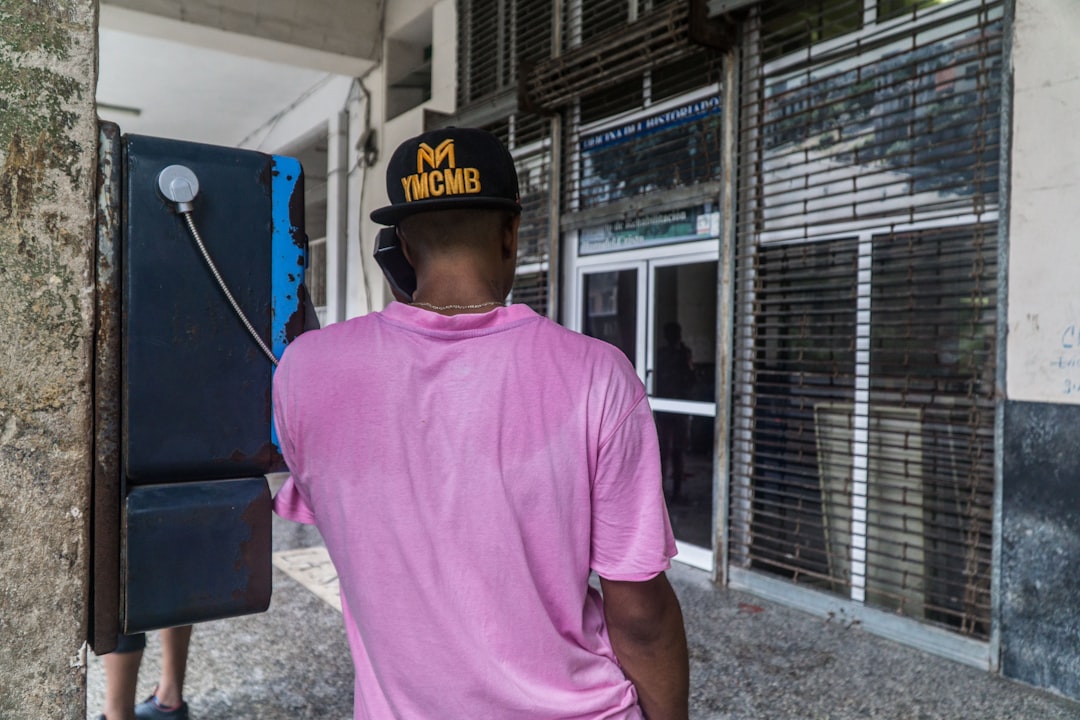South Carolinians facing relentless robocalls and unwanted text messages have legal recourse. State laws protect consumers from intrusive telemarketing practices, offering a path to stop nuisance calls and recover statutory penalties. Consulting with specialized lawyers, including 'stop unwanted texts' or 'robocall' attorneys in SC, is crucial for effective action against violators. Engaging reputable law firms focusing on robocall cases ensures expert guidance, documentation of evidence, and successful pursuit of compensation under relevant laws like TCPA.
Tired of relentless robocalls and unwanted texts? You’re not alone. In South Carolina, these automated intrusions can be a serious nuisance. Fortunately, state laws offer protections, providing consumers with rights to stop and report such calls. This article guides you through navigating the legal landscape, empowering you with knowledge about your rights and potential remedies. From understanding the law to hiring the right lawyer in SC for robocall cases, learn how to recover statutory penalties and reclaim your peace of mind. Discover your options and take charge against unwanted communication with expert advice from top robocall law firms and attorneys in South Carolina.
- Understanding Robocalls and South Carolina Laws
- Your Rights Against Unwanted Calls and Texts
- How to Stop and Report Robocalls in SC
- The Role of a Lawyer in Recovering Statutory Penalties
- Choosing the Right Law Firm for Robocall Cases
- Common Defenses Against Robocall Nuisance Claims
- Measuring Damages and Seeking Compensation
- Success Stories: Real-Life Case Studies of Robocall Litigation
Understanding Robocalls and South Carolina Laws
In today’s digital era, stop unwanted texts have become a prevalent nuisance, with many South Carolina residents facing an overwhelming influx of robocalls and spam messages. These automated communication attempts, often involving pre-recorded messages or artificial intelligence, are designed to promote products, services, or even political campaigns. While some robocalls may be harmless, others can be intrusive, deceptive, or even illegal, leading many victims to seek recourse through legal channels.
South Carolina laws, specifically targeting telemarketing practices, provide a framework for individuals to protect their privacy and stop unwanted texts. The state’s robust consumer protection regulations empower residents to take legal action against companies that violate these guidelines. If you’ve been a victim of persistent or deceptive robocalls, consulting with a lawyer specializing in robocall law in South Carolina (SC) could be your first step towards recovery. A qualified attorney can guide you through the process, helping you navigate the legal system to seek statutory penalties for violators and put an end to these nuisance calls once and for all.
Your Rights Against Unwanted Calls and Texts
In South Carolina, as in many other states, there are laws in place to protect consumers from unwanted calls and texts, commonly known as robocalls. These laws give you specific rights to take action against companies or individuals who bombard you with unsolicited communication. If you’ve been a victim of persistent robocalls or unwanted text messages, knowing your rights is the first step towards reclaiming control.
If you’re looking for a way to stop unwanted texts in South Carolina, consulting with a lawyer specializing in robocall cases can be immensely helpful. A qualified attorney from a reputable robocall law firm in SC can guide you through the legal process, ensuring you receive the statutory penalties you’re entitled to under the law. They can also assist in drafting cease and desist letters or taking legal action against recurring offenders, providing peace of mind and protection against future harassment.
How to Stop and Report Robocalls in SC
In South Carolina, unwanted robocalls are a persistent nuisance, but there are steps you can take to stop them. The first line of defense is to register your phone number with the National Do Not Call Registry. This federal list restricts telemarketers from calling landlines and cell phones for marketing purposes. However, robocallers often bypass this registry, so additional measures are needed.
If you’re facing a relentless wave of robocalls, consider consulting a lawyer specialized in robocall laws. A stop unwanted texts attorney SC can guide you through the legal options available. They might suggest blocking numbers, using call-blocking apps, or taking formal action against the perpetrators. Reputable robocall law firms SC are equipped to handle these cases and ensure that statutory penalties for violating SC’s robocall laws are recovered, providing much-needed relief from persistent automated calls.
The Role of a Lawyer in Recovering Statutory Penalties
When facing a barrage of unwanted robocalls or text messages, many South Carolina residents turn to legal professionals for help. A lawyer specializing in this area can play a pivotal role in not only stopping the nuisance but also helping you recover statutory penalties. These experts are well-versed in the state’s consumer protection laws and have the knowledge to navigate complex regulations surrounding telemarketing practices.
By engaging a lawyer focused on stop unwanted texts in SC, victims of robocalls gain access to legal counsel who can file complaints, negotiate with companies, and even represent them in court if necessary. Their expertise includes understanding the specific rules and restrictions outlined in the Telemarketing and Consumer Fraud and Abuse Prevention Act (TCFAPA) and similar state laws. This knowledge enables them to guide clients through the process of seeking compensation for their distress and financial loss caused by unsolicited communication.
Choosing the Right Law Firm for Robocall Cases
When facing a nuisance from robocalls in South Carolina, selecting the right legal representation is paramount to recovering statutory penalties. Look for a robocall law firm SC with a proven track record and expertise in consumer protection laws. An experienced stop unwanted texts attorney SC will understand the intricacies of federal and state regulations, such as the Telephone Consumer Protection Act (TCPA), which provides consumers with recourse against automated phone calls.
Choosing a reputable robocall lawyer SC involves considering their success rate in similar cases, client testimonials, and communication style. Ensure they offer personalized service, keep you informed throughout the process, and have the resources to effectively stop unwanted texts. A dedicated robocall attorneys SC will fight for your rights and help you navigate the legal system to achieve the maximum compensation allowed by law.
Common Defenses Against Robocall Nuisance Claims
Many individuals and businesses in South Carolina face robocall nuisance issues, prompting them to seek legal assistance from a stop unwanted texts lawyer SC or robocall attorneys SC. While some defenses are more viable than others, understanding common strategies can help individuals navigate these claims effectively. One of the primary defenses is to demonstrate that the caller did not obtain the recipient’s prior express consent, which is crucial under South Carolina laws governing stop unwanted texts.
Another defense often employed by robocall law firms SC involves challenging the validity of the telephone number listed on the complaint. Callers must use accurate and current numbers, and if a defendant can prove that the number was incorrectly associated with them, it could lead to dismissal of the claim. Additionally, businesses or individuals may argue that they are not responsible for robot-driven calls if they have contracted with third-party services and have clear agreements in place to mitigate such issues, involving robocall lawyers SC to draft and review these contracts.
Measuring Damages and Seeking Compensation
When dealing with a robocall nuisance, measuring damages and seeking compensation is a crucial step to recover statutory penalties in South Carolina. If you’ve been plagued by unwanted texts or automated phone calls, it’s important to document the extent of the harassment. Keep a record of each incident, including the date, time, and content of the calls. This documentation can include screenshots, call logs, or any recorded messages. A skilled stop unwanted texts lawyer SC or robocall attorney SC will utilize these records as evidence to build a strong case against the responsible party.
Engaging the services of a reputable robocall law firm SC is an effective way to navigate this process. These professionals have the expertise and resources to investigate your case, determine liability, and pursue appropriate compensation on your behalf. They can help you understand the applicable laws, such as the Telephone Consumer Protection Act (TCPA), and guide you through the legal system to ensure you receive fair stop unwanted texts relief, including monetary damages and injunctive relief to stop future robocalls.
Success Stories: Real-Life Case Studies of Robocall Litigation
In the ever-evolving battle against unwanted robocalls and text messages, several success stories emerge from South Carolina, highlighting the efforts of individuals who took a stand against this nuisance. These real-life case studies not only showcase the impact of legal actions but also inspire others to seek justice. For instance, a recent victory involved a client who, after months of persistent robocalls, hired a dedicated stop unwanted texts lawyer in SC. Through strategic litigation, the attorney successfully represented their client, securing substantial statutory penalties and establishing a precedent for similar cases.
This win demonstrates the power of individual action against robocall scammers. Many other South Carolina residents have followed suit, engaging robocall law firms SC and robocall attorneys SC to combat this growing issue. These collective efforts have led to not only financial reparations but also raised awareness about consumer rights and the severity of violators’ actions. With each successful case, the message becomes clearer: unwanted texts and robocalls will not be tolerated, and there are legal avenues to make a difference.






